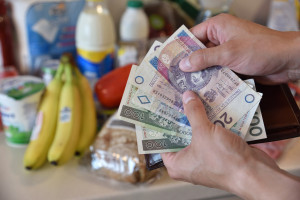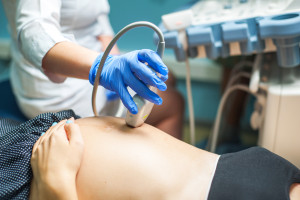Coffee is banned here. There is a date for the introduction of new regulations in Poland

Authors: PAP ; Prepared by KKR • Source: PAP • Published: June 22, 2025 11:11 • Updated: June 22, 2025 11:11
Coffee may disappear from schools and kindergartens. The Ministry of Health has published a draft regulation that bans the sale of coffee in educational institutions. This is part of broader changes to the rules for the nutrition of children and young people. The new regulations also specify how meals are to be prepared in school and kindergarten canteens.
The authors of the draft regulation emphasized in the justification that limiting children's consumption of ingredients such as sugars, salt and fats will not only have a positive impact on their health, but will also help them develop healthy habits. The regulation will cover all units of the education system.
The products that will be available for purchase at the stores include:
- bread,
- semi-confectionery and confectionery bread,
- sandwiches,
- salads and raw salads,
- milk,
- dairy products,
- plant-based drinks and plant-based products imitating dairy products,
- cereal products,
- vegetables,
- fruit,
- dried vegetables and fruits,
- nuts and seeds (without added sugars, sweeteners and salt), fruit, vegetable and fruit and vegetable juices,
- purees,
- fruit, vegetable and fruit-vegetable purees (without added sugar and salt),
- fruit, vegetable and fruit and vegetable cocktails based on milk, plant drinks and plant products imitating dairy products (without added sugars and sweeteners),
- natural mineral water of low or medium mineralization, spring and table water,
- sugar-free chewing gums,
- minimum 70 percent dark chocolate.
Other products not defined in the regulation that contain no more than 15 g of sugar, 10 g of fat and 1 g of salt in 100 g/ml of the product are also to be allowed for sale.
Confectionery and semi-confectionery products will have to contain no more than 15 g of sugar, 10 g of fat and 1.2 g of salt in 100 g, and cereal products no more than 15 g of sugar, 10 g of fat and 1 g of salt in 100 g. Dairy products, plant-based drinks and plant-based products imitating dairy products will be limited to containing no more than 13.5 g of sugar, 10 g of fat and 1 g of salt in 100 g/ml.
Moreover, the ministry wants to introduce an absolute ban on the sale of coffee in all units of the education system.
As he emphasized, "this regulation is a response to the demands of parents, guardians of children and young people and managers of educational institutions reported to the State Sanitary Inspectorate, who express concern about the observed increased amount of coffee consumption or the risk of its consumption by small children."
The regulation also regulates the sale of other beverages. Those to be permitted are those prepared on site, which contain no more than 5g of added sugars in 250ml, and others without added sugars or sweeteners.
The project also specifies the principles to be followed when creating menus in education system units.
The meals served are to be prepared using products:
- cereals or potatoes,
- vegetables or fruits,
- milk,
- meat,
- fish,
- eggs,
- nuts,
- legume seeds and other seeds,
- fats.
Kitchens will be able to replace milk with dairy products and plant-based drinks. Soups, sauces and dishes are to be made exclusively from natural ingredients, with concentrates from natural ingredients permitted. Fried food portions (in rapeseed or olive oil) are to be limited to two portions per week .
In an educational system unit where meals are served at least three times a day, the ministry wants them to be varied. Every day, the facility is to provide at least two portions of milk or dairy products , one of which can be replaced by a plant-based drink or a plant-based product that imitates a dairy product. One portion will have to contain meat, eggs, nuts or legumes. In addition, each meal will have to contain fruit or vegetables.
Breakfast, dinner and supper must include at least one portion of cereal products, although in the case of dinner it may be replaced with potatoes. At least once a week for dinner, a portion of fish and a dish prepared from legumes must be served. A portion of meat must be served at dinner at least twice a week.
The ministry also clarified the energy value of dinners served at the facility. This is 20 percent of the daily energy requirement for a one-course meal (second course) and 30 percent for a two-course meal.
In the case of kindergartens and other forms of preschool education, the meals served should provide 75 percent of the daily energy requirement.
The regulation is to enter into force on 1 September 2026.
Copyrighted material - reprint rules are specified in the regulations .
rynekzdrowia











